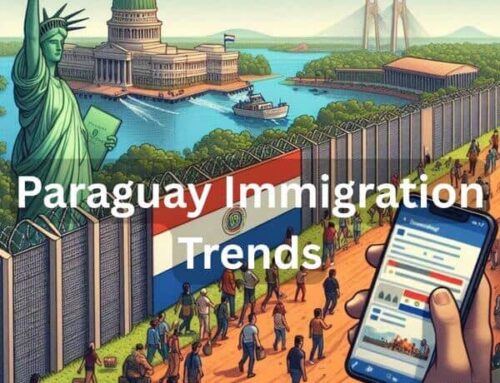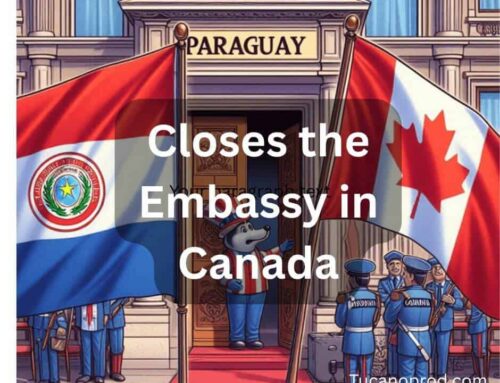It is essential to know before your immigration that your occupation in Canada is on the Skill Shortage List or not, because it has an impact on your immigration process, finding a job, and salary. Do you know what is the most sought-after profession in Canada in 2018? The forklift operator.
This post is a practical guide to find your qualifying profession on the National Occupational Classification list. I also wrote about the top ten sought-after jobs in the Canadian labour market and their expected salaries.
Where do you find yourself in the Canadian Skill Shortages List?
Your diplomas and other credentials with your professional experience have crucial importance during your immigration process. You have to find the right classification to be able to qualify for programmes or to simplify finding a job and apply for a Canadian work permit. Professional experience is also an excellent skill to have at least ten years if preferable, some of these years you should have worked in Canada, must have some diplomas from good universities and of course, native English and French knowledge are also welcome. Okay, I was joking, but the previously introduced profile is a secure way to Canada. Canada needs high-skilled professionals as all other countries with a fast developing economy. The North American state is seeking people, who can fill posts with professions from the skill shortage list not only for scientists and managers but there are plenty of jobs for applicants with technical qualifications.
There are offices for motivating and finding the immigrants with the necessary skills, here’s an interview on how much you can earn in the Canadian countryside.
Of course, professionals with specific jobs are needed more than others, but there are some skills which are highlighted in particular. For example, when you check if you can access the Express Entry, you will be asked whether you have any experience in the following jobs (if Canadian is even better). If you do not have, don’t worry about it, there are still a lot of different positions in Canada, but these professions are even more highlighted in the list:
- industrial, electrical and construction trades (NOC codes beginning with 72)
- maintenance and operation of equipment (NOC codes starting with 73)
- supervisors and technical jobs in natural resources, agriculture and related production (NOC codes beginning in 82)
- processing, manufacturing and public utilities and central controllers (NOC codes starting at 92)
- cooks and chefs (or NOC codes starting with 632)
- butchers and bakers (NOC codes beginning with 633)
What is the Canadian NOC code?
The Canadian NOC code is the number of your profession in the National Occupational Classification. The NOC code allows you to classify your activities, occupation, qualification and professional values during the immigration process.
The NOC was updated in 2016 for the last time so that you will browse the NOC 2016; you will know that your profession is on the skill shortage list because it can entitle you for the immigration in Canada.
The Express Entry system lists 347 jobs that allow immigration (if you qualify for the other conditions as well.)
Click on this link to find the NOC job classification site on the bottom of the page!
From all the NOC’s trades you can find the jobs related to skill shortage that your occupation, qualification or what you want to do is in the following categories:
- Skill Type 0
- Skill Level A, B, C or D
The categories A and B are considered for the qualified and skilled workforce. Meanwhile, the groups C and D do not count as qualifying classifications for immigration. However, there are many professions and trades in this category in the highest demand.
Skill Type 0 indicates the manager level, for example:
- restaurant managers
- mine managers
- fishing boat captains
- marketing, PR managers
- corporate middle and senior executives
Skill Level A, these are jobs that require a university degree, for example:
- doctors
- dentists
- engineers
Skill Level B: technical jobs and skilled trades that usually need a college diploma or at least training as an apprentice, such as:
- chefs
- electricians
- gasmen
Skill Level D, these professions provide on-the-job training, such as:
- agricultural workers (fruit pickers)
- cleaning staff
- oilfield workers
Let’s see how you can find yourself in the Canadian skills shortage list 2018 in practice
I have degrees in foreign trade, tourism and journalism, and I have my professional experience at all levels in these industries.
So, I’ll put in the filter “journalist”, and it shows that my beloved profession is at “Skill Level A”, which is perfect and the code is 5123. This is not that good, because I need a “0” instead of the “5” to be on the list of the most wanted high-skilled workforce. However, if I look at the detailed list below at “0”, there are the matches: 0013, “Senior managers, financial, communications and other business services” pops up. That’s good, I’ve been a senior manager already in communication for long years. However, let’s look at it again, a new hit 0015, this time “Senior managers, trade, broadcasting and other services”. Since I’ve been working in commercial TV channels, it also fits. So, you have to check the NOC list properly, because the success of your Canadian immigration process can depend on it.
What are the ten most wanted professions in Canada in 2018?
I found these ten jobs in a survey from Randstad.
- General Labourer, hourly wage between $ 15.90 and $ 18.39.
- Sales Representative, an annual salary between $ 52,000 and $ 62,000, for junior positions.
- Accountant, annual salary between $ 63,000 and $ 75,000.
- Engineering project manager, the annual salary ranges from $ 74,000 to $ 92,000.
- Business analyst, from $ 73,000 to $ 87,000 each year.
- Customer service representative, annual salary ranging from $ 37,000 to $ 43,000.
- IT project manager, between $ 92,000 and $ 114,000 per year.
- Account Manager, $ 75,000 – $ 92,000
- Software Engineer, $ 83,000 – $ 99,000
- Forklift operator, hourly wage between $ 16.59 and $ 19.42.
I am not a registered immigration agent in Canada. I write about it because Canada has one of the most modern and transparent immigration systems. If you want to receive information from the source, please visit the official site of the Government of Canada about the immigration and citizenship issues here!







Leave A Comment